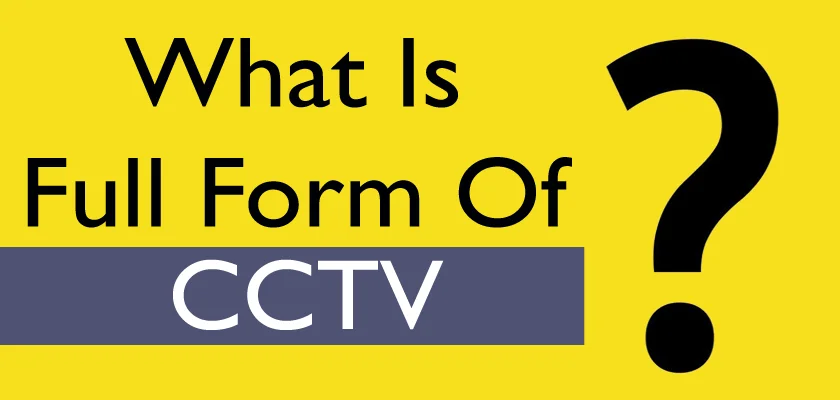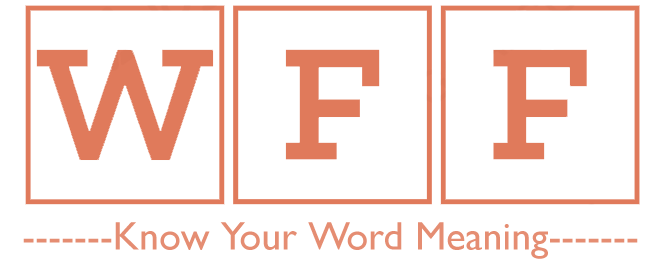Do you know what is the CCTV Full Form? The CCTV Full Form Stands for Closed Circuit Television. Everyone knows that CCTV is the most essential part of surveillance and plays a vital role in the security system. CCTV is also known as video surveillance. A CCTV camera can capture all visible activities in the front of the CCTV system in the way of offline (Recording disk) or online storage.
In CCTV all components including the video camera, display monitor and recording device are directly connected and complete this system. It is used to keep an eye on a sensitive location (A particular area which needs continuous observation and where there is no one to watch all the time). Due to its extensive monitoring and recording capabilities, it is particularly beneficial in preventing crime. Spotting traffic jams and accidents, it is also utilised for traffic monitoring.
A CCTV can send video and audio signals to the monitor or recording device through wired or wireless and these signals are saved in the recording device such as a DVR or NVR. In present times the image quality of CCTV cameras is improving as advanced CCTV cameras have night vision feature to capture good quality images and videos at night. The CCTV signals are not provided in publicly because they are used for security purposes.
Table of Contents
Who invented CCTV?
CCTV (closed-circuit television) was invented in the United Kingdom in the 1940s by German engineer Walter Bruch. Bruch worked for the German military and developed CCTV to monitor missile tests. And now, CCTV is used in other applications such as security and surveillance.
Basic Parts of CCTV
There are several important parts that complete the CCTV system, including:
- Security Cameras (Analog or Digital)
- Display Unit (optional, usually a monitor)
- Storage Unit (usually a Hard Disk)
- Video Recorders (DVR or NVR)
- Cables (RJ45 or RJ59 Cables)
Places where CCTV is usually installed
Here are some examples of places where CCTV cameras are installed:
- Banks
- Airports and Railway Stations
- Building and Residential Apartments
- Government Offices and Buildings
- City Roads and Highways
- Shops and multiplexes
- Casinos
- Corporate Houses
- Industrial plants etc.
What are the advantages of CCTV?
We know that the CCTV Full Form stands for Closed Circuit Television and it has multiple uses and advantages such as surveillance, that we mention below:
- CCTV cameras can reduce the rate of theft in a particular affected area as a criminal will prefer to go elsewhere when he knows that CCTV is watching him.
- It provides the facility of remote monitoring.
- It can reduce the fear of crime.
- It can increase business efficiency and enhance profitability.
- It also minimizes the risk to shopkeepers.
- It can be used as a great option for residence security.
- CCTV video is useful to support the police when pursuing criminal investigations.
How does CCTV Work?
A complete CCTV is consist of its hardware and software system. A modern CCTV networks use hardware and software to convert analogue signals to digital ones. Digital and analogue systems function significantly differently. This is a way known as retrofitting.
The following method describes how CCTV works:
CCTV systems generally include cameras, a digital video recorder (DVR), and a monitor. The captured video footage is recorded by the cameras and sent to the DVR for storage via cables (Cables, coaxial for analogue and RJ45 for digital). Users may see the video footage in real-time or examine stored material because the DVR is often attached to a display. Some CCTV systems have the capacity to send video footage over the internet, enabling users to remotely access the video footage from a computer or mobile device.
A camera collects images through the lens using image sensors.
In order to scan the data and automatically warn users or other systems and devices, recorders may utilise analytical software and other intelligent technologies. This video management software (VMS) records, stores, and analyses video streams. In order to learn on its own, the software typically uses machine learning (ML) algorithms that make use of aspects like motion detection, facial recognition, people counting, etc.
Using the software, the monitor(s) may be watched passively or actively (by people). CCTV networks may and should be monitored to track criminals in society.
Types of CCTV Systems
There are many types of CCTV cameras. You can classify them into different groups according to different factors:
- Analog
- Digital
- Network or IP
- Wi-Fi surveillance cameras
- PoE surveillance cameras
- Cellular surveillance cameras
CCTV Camera related full form
These are some CCTV-related full forms
- CCTV- Closed Circuit Television
- DVR- Digital Video Recorder
- NVR- Network Video Recorder
- VMS- Video Management System
- ML- Machine Learning
- IP- Internet Protocol
- HD- High Definition
- PTZ- Pan, Tilt, and Zoom
- CCD- Charged Coupled Device
- IR- Infrared

FAQ – What Is The CCTV Full Form
What is the full form of CCTV?
The full form of CCTV is Closed Circuit Television.
What is the CCTV Full Form in Hindi?
The full form of CCTV in Hindi is क्लोज्ड सर्किट टेलीविजन.
What is the CCTV Full Form in medical?
In Medical, the full form of CCTV stands for Closed Circuit Television.
How does CCTV work?
CCTV works by capturing video footage through a network of cameras and transmitting it to a Digital Video Recorder (DVR) or a designated device, such as a computer or TV.
What is CCTV used for?
CCTV is commonly used for security and surveillance purposes, such as in banks, retail stores, public areas and commercial properties. It may also be used for monitoring and recording activity in certain areas or for investigative purposes.
Is CCTV footage always recorded?
Yes, CCTV footage is usually recorded on a Digital Video Recorder (DVR) or Network Video Recorder (NVR). This allows the footage to be reviewed and used as evidence if necessary.
Is it legal to install CCTV on private property?
Yes, it is generally legal to install CCTV on private property, as long as it is used for legitimate purposes such as security and surveillance. However, there may be some laws and regulations that need to be followed.
Thanks for reading What is the CCTV Full Form? Bookmark our website Whatisfullform.com to know or read our collection of full forms.


